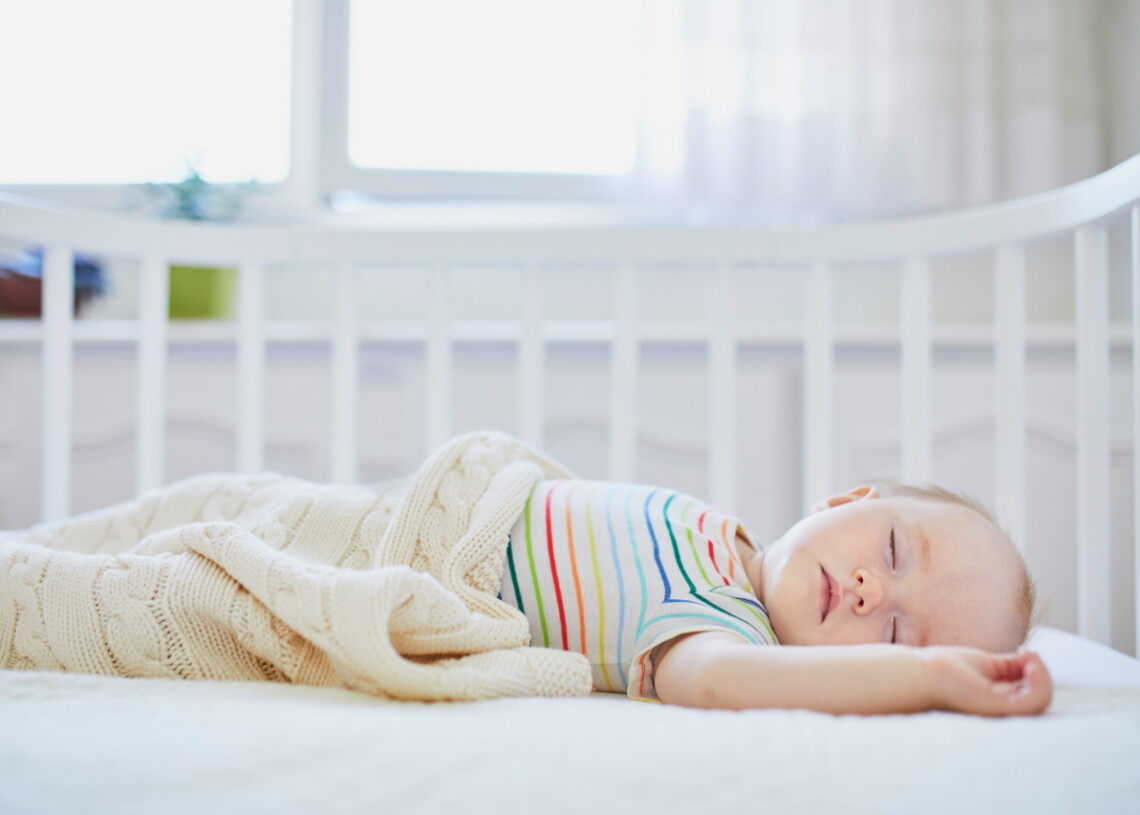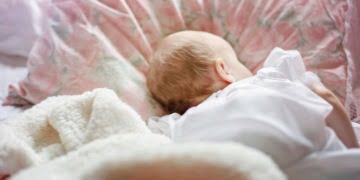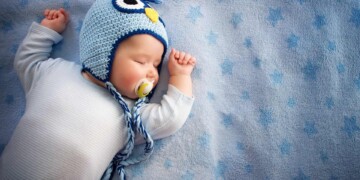Key Notes
- Sleeping disorders are very common in kids
- Night terrors. Obstructive sleep apnea, Sleep walking, are some of the common sleep disorders
- Sleep disorders can be the root cause of many other medical issues in babies
- Know when to see a doctor for your child’s sleep disorders
In this article we will discuss common infant sleep disorders signs and their causes and treatment options.
Obstructive sleep apnea
Obstructive sleep apnea is a sleep disorder that occurs when the airway becomes blocked, preventing your child from breathing properly. This can lead to disrupted sleep and snoring. The most common causes of obstructive sleep apnea are enlarged tonsils or adenoids, obesity, and nasal congestion. Treatment options include surgery to remove the obstruction or using a CPAP machine while asleep.
Night Terrors
Night terrors are a type of sleep disorder that causes your child to have a terrifying experience during sleep. They usually occur in the first few hours of sleep and can cause screaming, sweating, and heart palpitations.
Night terrors are most common in children age’s three to twelve and typically resolve on their own over time. There is no specific treatment for night terrors, but you can try comforting your child and preventing them from watching scary movies or TV shows before bed.
Sleepwalking
Sleepwalking is a sleep disorder that causes your child to walk around while asleep. It usually occurs in the first few hours of sleep and is more common in children age’s four to twelve. Sleepwalking can be dangerous if your child walks into something or tries to leave the house. Treatment options include keeping a clear path to the bathroom and using a baby monitor.
Parasomnias
Parasomnias are a type of sleep disorder that causes your child to act out their dreams while asleep. This can include talking, yelling, sleepwalking, and sleep eating. Parasomnias are more common in children ages three to seven and usually resolve on their own over time. If your child is experiencing parasomnias, try to keep a journal of their symptoms and talk to a doctor if they persist.
Restless Legs Syndrome
Restless legs syndrome is a sleep disorder that causes your child to feel an uncomfortable sensation in their legs, often accompanied by a desire to move them. This can lead to difficulty falling asleep and disrupted sleep. The most common cause of restless legs syndrome is iron deficiency anemia. Treatment options include taking iron supplements or trying lifestyle changes, such as reducing caffeine intake and getting regular exercise.
Behavioral insomnia of childhood
Behavioral insomnia of childhood is a sleep disorder that causes your child to have difficulty falling asleep and staying asleep. It is most common in children ages two to six and can be caused by anxiety, stress, or excitement about something new. Treatment options include establishing a bedtime routine, using relaxation techniques before bed, and avoiding caffeine and screens before bed.
Insomnia
Insomnia is a sleep disorder that causes your child to have difficulty falling asleep and staying asleep. It is most common in adults, but can also occur in children. The most common causes of insomnia are stress, anxiety, and depression. Treatment options include cognitive-behavioral therapy, medications, or a combination of both. It is important to seek treatment for insomnia, as it can lead to health problems such as obesity and heart disease.
Sleep deprivation
Sleep deprivation is a sleep disorder that occurs when your child does not get enough sleep. This can cause difficulty concentrating, mood swings, and decreased immune function. The most common causes of sleep deprivation are anxiety, stress, and depression. Treatment options include getting more sleep, using relaxation techniques, and seeking treatment for underlying mental health disorders.
Delayed sleep phase disorder
Delayed sleep phase disorder is a sleep disorder that causes your child to have difficulty falling asleep and staying asleep. It is most common in adolescents and young adults. The most common cause of delayed sleep phase disorder is a change in circadian rhythms, such as during puberty. Treatment options include using light therapy, taking melatonin supplements, and following a strict sleep schedule.
Regular Nightmares
Nightmares are a type of sleep disorder that causes your child to have frightening dreams. They usually occur during the second half of the night and are more common in children ages three to six. Nightmares can be caused by stress, anxiety, or trauma. Treatment options include using relaxation techniques before bed, keeping a journal of your child’s nightmares, and talking to a doctor if they persist.
Confusional arousals
Confusional arousals are a type of sleep disorder that causes your child to partially wake up during the night and not be able to return to sleep. They usually occur during the second half of the night and are more common in children ages one to two.
Confusional arousals can be caused by stress, anxiety, or excitement about something new. It makes your child feel confused and disoriented. Treatment options include establishing a bedtime routine, using relaxation techniques before bed, and avoiding caffeine and screens before bed.
If your child is showing any of these signs, it’s important to talk to a doctor about treatment options. Sleep disorders can have a big impact on your child’s health, so don’t hesitate to get help if you’re concerned. It’s also important to make sure your child gets enough sleep, as this can help prevent health problems down the road.
What Are Some General Causes Of These Sleep Disorders in Children?
There are a variety of things that can cause sleep disorders in children. Some common causes include:
Anxiety: Anxiety can be a major cause of sleep disorders in children. Children with anxiety may have difficulty falling asleep or staying asleep due to their worry and racing thoughts.
Stress: Stress can also lead to sleep disorders in children. Children who are under a lot of stress may have trouble falling asleep or may wake up frequently during the night.
They Are Tired: One of the most common reasons why children have difficulty sleeping is because they are simply tired. This can be due to not getting enough sleep on a regular basis.
Illness: Sometimes, sleep disorders can be caused by an underlying medical condition. If your child has a cold or the flu, they may have difficulty sleeping due to coughing, congestion, or pain.
Environmental Factors: There are also a number of environmental factors that can interfere with your child’s sleep. Excessive noise, light, and heat can all make it difficult for children to fall asleep and stay asleep.
If They Are Sleep Deprived: One of the most common consequences of sleep disorders is sleep deprivation. When children don’t get enough sleep, they may be tired during the day and have difficulty concentrating. They may also be more prone to accidents and injuries.
How Dangerous Are Sleeping Disorders For Children?
Some sleeping disorders, such as sleep deprivation and confusional arousals can be treated with lifestyle changes. However, other sleeping disorders, such as insomnia and delayed sleep phase disorder, can have serious health consequences if left untreated.
Sleep deprivation can lead to obesity and heart disease, while insomnia can lead to anxiety and depression. It is important to talk to a doctor if you think your child may have a sleep disorder, as treatment can help prevent these serious health problems.
When to See a Doctor for Your Child’s Sleep Disorders
If your child is continuously suffering from sleeping disorders then may be its time for you to take them to the doctor. It is especially important to take them if the sleep disorder is impacting their quality of life or their health.
A doctor can help you determine if your child has a sleep disorder and what the best course of treatment is. Don’t hesitate to get help for your child’s sleeping disorders, as it could have serious implications for their health down the road.
Here you can read our Baby Sleep Miracle program review and Sleep Sense program review that may help your baby sleep through the night.





























